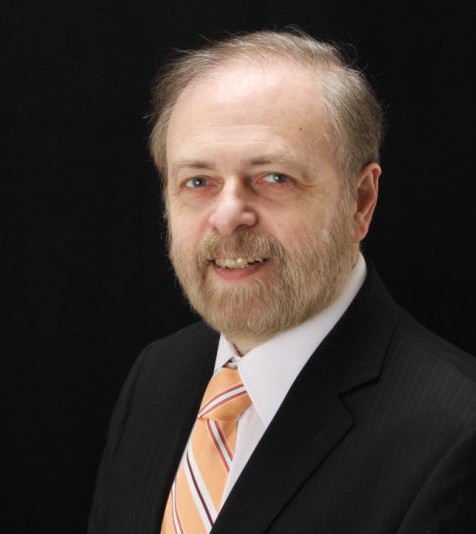A Selection from My Favorite Jewish Sources
Rabbi Mordechai Levin
Yerushalmi, Kiddushin 4:12
The sages said in the name of Rav: It is forbidden to live in a city where there is no physician.
Talmud, Baba Kamah 46b
When a man has a pain, he should visit a physician.
Midrash Shmuel 4
It is told of Rabbi Ishmael and Rabbi Akiva that, while they were walking through the streets of Jerusalem accompanied by a certain man, a sick person confronted them and said, “Masters, tell me, how shall I be healed?”
They replied, “Take such-and-such, and you will be healed.”
The man accompanying the sages asked them, “Who smote him with sickness?”
They replied, “The Holy One.”
The man: “And you bring yourselves into a matter that does not concern you? God smote, and you would heal?”
The sages: “What is your work?”
The man: “I am a tiller of the soil. You see the sickle in my hand.”
The sages: “Who created the vineyard?”
The man: “The Holy One.”
The sages: “Then why do you bring yourself into a matter that does not concern you? God created it, and you eat the fruit from it!”
The man: “Don’t you see the sickle in my hand? If I did not go out and plow the vineyard, prune it, compost it, and weed it, it would have yielded nothing.”
The sages: “You are the biggest fool in the world! Have you not heard the verse ‘As for man, his days are as grass’ [Psalms 103:15]? A tree, if it is not composted, weeded, and [the area around it] plowed, will not grow; and even if it does grow, if not given water to drink, it will die–will not live. So, too, the human body is a tree, a healing potion is the compost, and a physician is the tiller of the soil.”
Talmud, Taanit 21b
What was the special merit of Abba Ummana?
When he performed his operations he would separate men from women, and in addition he had a cloak which was slit at the shoulder and whenever a woman patient came to him he would put the garment on her shoulder in order not to see her [exposed body].
He also had a place out of public gaze where the patients deposited their fees which he would charge; those that could afford it put their fees there, and thus those who could not pay were not put to shame.
Whenever a young scholar happened to consult him not only would he accept no fee from him but on taking leave of him he also would give him some money at the same time adding, Go and regain strength therewith.
Midrash Shmuel 4
In a human body, the component parts are dependent on one another. When one ceases to function, so does the other. When they break apart one from the other, the body is stricken and the person dies, like a house that has four sides–if one side breaks away, the house collapses.
Talmud, Yoma 85a
The saving of life (pikkuah nefesh) takes precedence over Shabbat.
Talmud, Berachot 5b
Rabbi Hiyya bar Abba fell ill and Rabbi Johanan went in to visit him. He said to him: Are your sufferings welcome to you? He replied: Neither they nor their reward. He said to him: Give me your hand. He gave him his hand and he raised him.
Rabbi Johanan once fell ill and Rabbi Hanina went in to visit him. He said to him: Are your sufferings welcome to you? He replied: Neither they nor their reward. He said to him: Give me your hand. He gave him his hand and he raised him. Why could not Rabbi Johanan raise himself? – They replied: The prisoner cannot free himself from jail.
Talmud, Nedarim 40a
Rabbi Shisha son of Rabbi Idi said: One should not visit the sick during the first three or the last three hours [of the day], lest he thereby omit to pray for him.
Talmud, Nedarim 39b
Rabbi Abba son of Rabbi Hanina said: He who visits the sick takes away a sixtieth of his pain.
Siddur Sim Shalom, p. 7
Praised are You, Lord our God, King of the universe who with wisdom fashioned the human body, creating openings, arteries, glands and organs, marvelous in structure, intricate in design. Should but one of them, by being blocked or opened, fail to function, it would be impossible to exist. Praised are You, healer of all flesh who sustains our bodies in wondrous ways.
 is the rabbi of Congregation Beth Israel in Munster, IN. He received his rabbinic ordination from the Latin American Rabbinical Seminary, and is a member of the Rabbinical Assembly. In 2010, he was awarded an Honorary Doctorate of Divinity from the Jewish Theological Seminary in New York City for his years of dedicated service to the Conservative movement and the Jewish community...
is the rabbi of Congregation Beth Israel in Munster, IN. He received his rabbinic ordination from the Latin American Rabbinical Seminary, and is a member of the Rabbinical Assembly. In 2010, he was awarded an Honorary Doctorate of Divinity from the Jewish Theological Seminary in New York City for his years of dedicated service to the Conservative movement and the Jewish community...